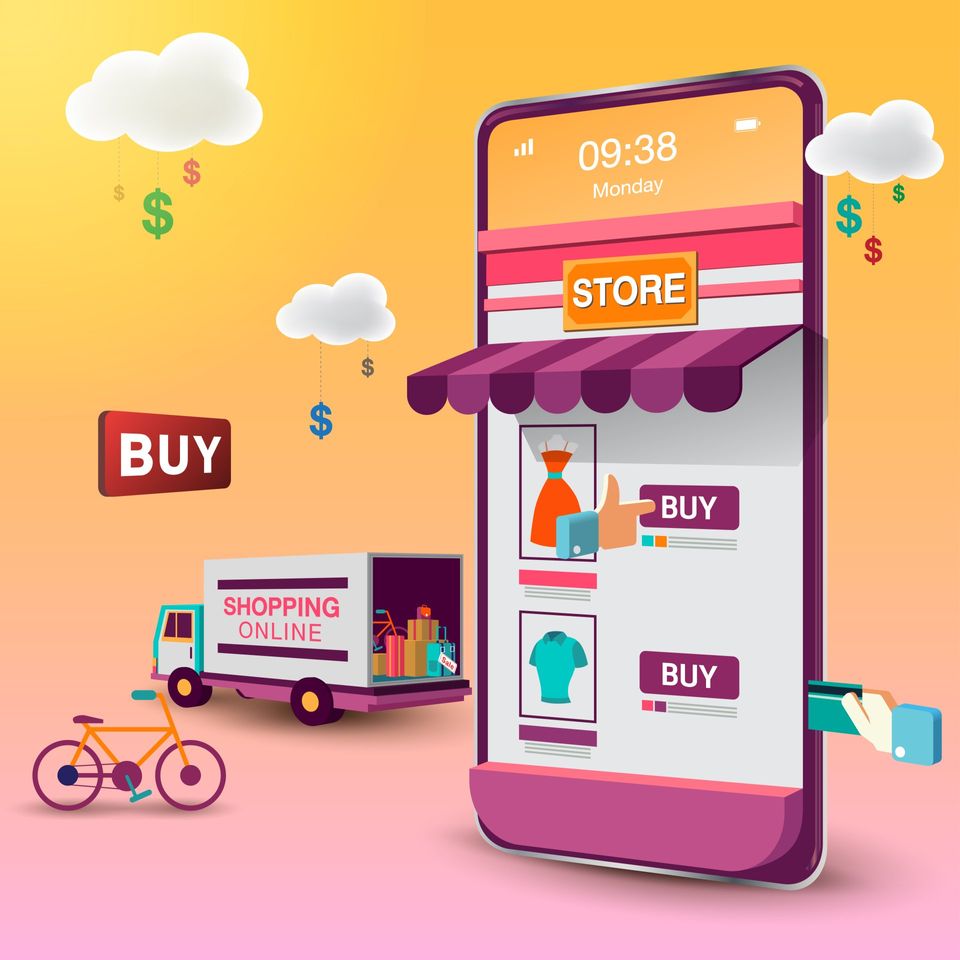As social distancing becomes the norm, ecommerce is more critical than ever. The ability for retailers to embrace the technology, leverage online customer behaviour and utilise digital marketing will help them survive and thrive through what is looking like an inevitable recession.
In this post, we will look at what makes an effective ecommerce site as well as digital marketing channels that can help you through the turbulent times ahead.
Leveraging eCommerce
Small to medium-sized businesses may need to re-think their go-to-market channels due to the coronavirus. Ecommerce businesses, in many sectors, are experiencing considerable increases in demand. Online food delivery is booming as fear sets in and people order-in instead of eat-out or risk going to the supermarket and becoming infected. With restaurants being forced to offer take-out only, adaptation is crucial for survival. Smaller players who don't already have an ecommerce set-up might be thinking about launching an ecommerce branch to reach customers who are afraid to go in-store.
But where there is fear and uncertainty, there is always opportunity. Life does still go on. But there is undoubtedly an opportunity to use digital technologies to allow staff to keep working, selling and interacting with customers online. Remote working was already on the rise, and I believe after COVID-19 has blown over working remotely will become even more the norm.
Furthermore, online shopping has already taken preference over the brick and mortar stores for most shoppers. Now, with COVID-19 setting in, the choice for online shopping will dominate. It's time to adapt.
If you are looking to start an ecommerce site or revise your ecommerce advertising strategy, there are several factors to consider. A quality digital agency or web developer can help design and optimise your ecommerce site to function optimally.
Conversion optimised
Streamline the sales funnel by providing a seamless journey for your customers. A good web designer can apply the principles of psychology to improve conversion. It's possible to condition your users to a "buying experience". The major ecommerce players spend millions & millions researching the psychology behind their websites.
User experience (UX) designed
You will want a clean and beautiful digital end-user experience for your customer journey. Furthermore, a custom ecommerce design that reflects your unique brand identity and point-of-difference will help you stand out from your competitors.
Mobile Responsive eCommerce
With more people shopping online on their mobile phone than on a computer nowadays, it is essential to carry that great UX over to mobile. Provide a clean and seamless mobile experience of your customers to shop from anywhere and anytime on their phone.
A customer experience (CX) they love
By designing your ecommerce store with your customer's experience in mind, you are providing them with something they love. As a result, you will find this reduces churn, creates positive word of mouth and builds a loyal customer base who enjoy engaging with your brand.
When developing ecommerce websites, every detail matters to help boost your revenue. From site structure & navigation, page-load speed and the mobile experience, each aspect will impact the end-user experience and, consequently, the sales generated. Even details like fonts, colour schemes, and location of calls-to-action have an impact on your revenue.
Engage across channels
There are also areas to engage homebound workers and customers across channels. With people staying home, their in-store touch points reduce, so knowing how to capitalise on this behaviour by using digital channels to communicate is vital. You can work with digital agencies to develop strategies around communicating with your target customer through online channels, enabling both a great customer experience and sales opportunities.
A good digital agency will help you use social media to communicate information such as your opening hours and supply. Moreover, by investing in paid advertising you can connect with users just at the time they're searching for products and services like yours.
Ecommerce marketing
There are a range of marketing options to get your products in front of your target customers.
Google Ads (PPC)
Appearing in organic search results is helpful but can be difficult to attain, especially if you’re brand new or in a competitive market. If you need to be seen instantly, investing in paid advertising will help to get your products and services in front of your target audience at just the moment they are searching for them.
Pay-per-click advertising (PPC) is where you pay a small fee each time one of your ads is clicked in the search results. Essentially, you are "buying" clicks to your website, as opposed to getting those visits organically (SEO). Search engine advertising (SEM) is one of the most popular forms of advertising through Google and Bing ads. There are a range of ways you can do this with Google, including Google Search Campaigns and Google Shopping Campaigns.
Facebook Ads
Another form of paid advertising with a high ROI is Facebook Ads (which also includes Instagram Ads). Like Google, Facebook's reach is extensive, with over an astonishing one billion people having a Facebook account around the world. It makes sense then, to target your product or service to the right audience through Facebook.
Facebook also allows you to get your ads in front of the right audience at the right time. With metrics such as age group, location, and even interests, you can narrow down your ads to a specific target audience to help you get the best ROI.
Media plays a vital role in Facebook ads. It is proven that readers respond better to ads with an image or video to accompany the text. As for the copy, you’re able to tell a story about your brand, products and services. Doing this in a compelling way which entices further action can be hard as users are usually on their mobile devices and not specifically looking for your products and services when they see your ads. In saying that though, they can be extremely effective when set up right and constantly being monitored and adjusted based on the response you receive.
Management vs DIY
A quality digital agency knows how to identify your target market and understand their web browsing behaviour. They design ad campaigns that optimised for specific platforms, including Facebook and Google Ads.
It's worth investing in a digital agency who will design your ads, write compelling copy and ensure that there is a seamless flow of traffic to your ecommerce site. They will continually test and refine your ads, working towards optimal conversion optimisation. Furthermore, a digital agency will track pixels and retarget ads so that visitors are reminded of your business as they journey through the internet.
Managing your own campaigns might seem easy at first, however there are a range of campaign settings that you need to have a strong understanding of in order to create campaigns that will achieve your goals. Furthermore, there can be a lot of technical knowledge required to connect platforms and integrate your product catalogs. Beyond initial set up, proper data analysis and interpretation is required in order to optimise and get a strong ROI from your campaigns. Not only do you need the knowledge and skills to do all this, but you also need to dedicate time each week to review and adjust your campaigns.
Demonstrate full transparency
As we know, trust is an essential factor that today's consumers look for in a brand. When it comes to coronavirus, full transparency around customer frustrations and fears will further enhance your brand's reputation and foster customer loyalty.
Be open about the coronavirus protections you're actively putting in place. Moreover, consider training your team on handling any COVID-19 enquiries with appropriate sensitivity.
To wrap it up
There are many factors to consider when setting up and managing an ecommerce store that looks great and converts. Design is crucial, but beyond that you need a marketing strategy that will target the right audience, obtain site traffic and convert that traffic into customers. If you need any help with your ecommerce strategy,
get in touch
to chat to one of our directors today.









